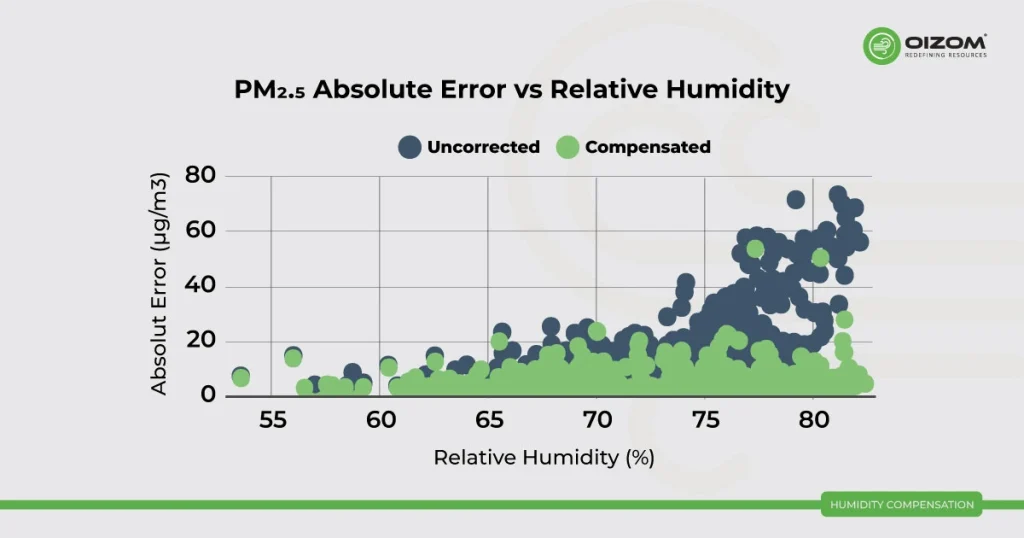Find the terms by letter
Humidity compensation
Definition
Relative humidity compensation means that the sensor’s measurements are adjusted to account for changes in humidity levels in the sensor’s environment. Humidity can influence how certain gases interact with the sensor’s surface, affecting its response. Compensation involves incorporating humidity sensors into the sensor system, monitoring humidity levels, and applying correction algorithms to account for humidity-induced variations in the sensor’s output.
Definition and Description
Relative humidity compensation for a sensor refers to the practice of modifying its measurements to accommodate fluctuations in the humidity levels in the sensor’s surroundings. Humidity can impact the way certain gases interact with the sensor’s surface, which in turn can alter its responses. To address this, compensation entails the inclusion of humidity sensors within the sensor system, allowing for continuous monitoring of humidity levels. Correction algorithms are then utilized to counteract the effects of humidity-induced changes in the sensor’s output, thus enhancing the accuracy of its measurements.




